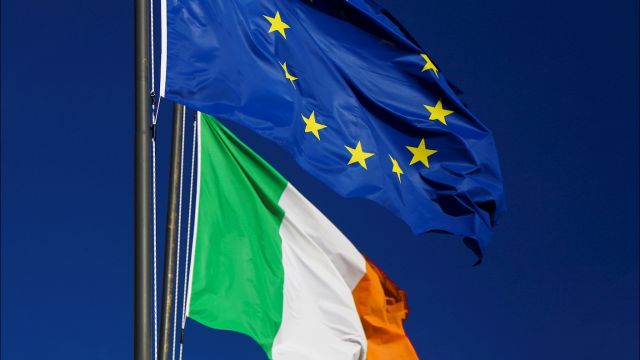The Irish language will have full official and working status within the European Union (EU) from January 1st for the first time.
This comes following a derogation period that began in 2007 due to a shortage of translators. Since then, some 170 Irish language staff have been recruited by European institutions. The number is expected to increase to over 200 from next year.
Speaking about the end of the derogation period, Minister for European Affairs Thomas Byrne said he was "immensely proud".
"This reflects the tireless work that has gone into building up the capability of the EU Institutions to operate through Irish - and it is fitting that it is happening this year, a year when we will also mark the historic 50-year anniversary since Ireland signed the Treaty of Accession to the European Communities," Mr Byrne said.
Cúis bród dom agus don tír go bhfuil stádas iomlán oifigiúil a fáil ag #gaeilge san Aontas Eorpach amárach, Lá Caille.
Is teanga beo agus comhionann í an Ghaeilge - don lá inniu agus don todhchaí.
Gaeltacht é an tAontas Eorpach anois - go hoifigiúil! 🇮🇪🇪🇺
❤️ 🇪🇺 #Gaeilge— Thomas Byrne (@ThomasByrneTD) December 31, 2021
Advertisement
According to the latest figures, the volume of Irish language translations within the EU has risen almost six-fold since 2016, from 8,000 to almost 46,000 by October 2021.
"The ending of derogation will make the services of the EU more accessible for Irish speakers at home and abroad," Mr Byrne said.
"As a proud Gaeilgeoir myself, I regularly contribute to Council meetings as Gaeilge and I would encourage everyone to make use of their cúpla focal, in every aspect of their life."
Commenting on the upgraded status of the Irish language, Minister of State for the Gaeltacht and Sport Jack Chambers said it was a "crucial step in the development and future of the language".







